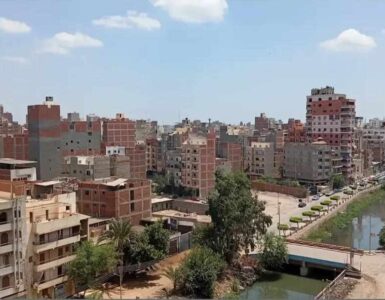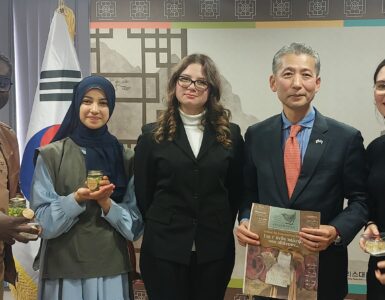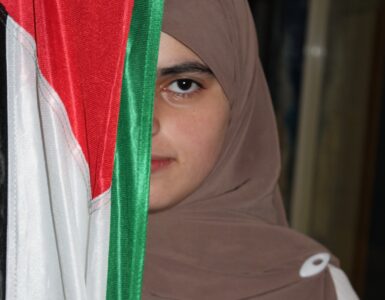The Deputy Minister of Labor and Social Affairs , Domna Michailidou, answers to our questions, showing us how through her institutional role she tries to support the child and his/her needs and analyzing the steps that still need to be taken in order to point out the substantial protection of the rights of the child.
What measures are you taking and what actions have you taken through your institutional role, so that in essence “all children are equal”?
We come as a State and set clear priorities. Children are a non-negotiable priority for us. With new actions, funded by both national and EU funds, we ensure that all children have equal opportunities away from social exclusion. Preschool education serves an important, dual purpose. On the one hand, it contributes to the reduction of inequalities and on the other hand, in absolute terms, to the development of the child himself. This school year started with more children than ever before (111,000) in crèches through the crèche voucher scheme, thanks to an increase in its budget to €333m (up from €270m in 2019). But what does this increase mean in practice? We increased by 6,000 euros for each child the income below which someone can receive state funding. We also included women who work in the public sector in the program, correcting an injustice of years. Women who worked in the public sector, no matter how low their salary, were for decades unfunded. Along with the increase in the budget, we ensured a 10% increase in the value of each voucher at the stations. Knowing full well that quality and inclusive preschool education and care is of pivotal importance to breaking the intergenerational chain of social exclusion and ensuring equal opportunities for disadvantaged children, we instituted the “Hive” program. The “Hive” program includes the establishment of a single daily operation program for the stations with goals and focus on different aspects of each child’s personality, the strengthening of the logistical infrastructure of the stations, the training of the existing childcare workers and their support from mentors. However, for us the correct and all-round support of childhood includes the development of early detection services. As part of the “Kipseli” program, the early detection of any learning difficulties and disabilities is being introduced for the first time in the country’s infant, child and nursery schools. Special diagnostic tests are established, with the aim of early detection of developmental disorders and early therapeutic intervention, which will improve the children’s functionality to the maximum extent possible. Finally, I could not fail to mention the establishment of the institutional framework of specifications for the establishment and operation of Child Protection Units. We fill a major regulatory gap in child protection, which aspires to turn institutional care into a means of deinstitutionalization for every child deprived of his or her family. Now, the state has not only the authority to license these structures, but also clearly defined authority to supervise, control and impose sanctions. We protect the most vulnerable children for as long as they stay in the institution until we find a suitable family for them.
What right do you think is missing from the International Convention on the Rights of the Child? If you were given the chance, which one would you fill in?
This is a really tough question. I think I wouldn’t add anything extra to the list of rights. But I would like to reach the point where we can say that we have ensured the full implementation of the rights of the child. If there’s one thing I’ve learned in my three years of working with child protection, it’s the need for child-centered interventions, continuous evaluation and, where necessary, revision of procedures to serve the best interests of children. That is why we considered the integration of the Child Guarantee into Greek legislation to be of the utmost importance. Children are our biggest investment and our main priority.
What do you consider to be the most “underrated” right from the Convention on the Rights of the Child?
The right to rest, relaxation and play and the value of participation in artistic and cultural life for all, including children and especially the most vulnerable. All of us more or less remember how much we loved the game when we were kids and even more so when for some reason we missed it. But we forget that this right is just as important as education and nutrition. Opportunities for play, recreation, participation in culture not only broaden the child’s horizons in collectivity, diversity, inclusion but can also play an important therapeutic role in helping children regain a sense of normality and joy.
Would you agree that the rights of the child should become a compulsory subject at school in every class?
Of course! Children already from kindergarten should come into contact with concepts such as rights, freedoms, obligations. According to Amnesty International, teaching human rights in kindergarten and primary school aims more at the development of attitudes and skills, the adoption of values and standards of respect and cooperation and less at cognitive goals. Older children enjoy critically and creatively processing abstract concepts, informing and organizing discussions about social issues, and developing their personal worldview. Thus, the teaching of human rights in middle school and high school aims to inform, develop critical thinking and cultivate an attitude of responsibility towards the implementation of rights.
From your experience, or your feeling, which right of children is violated most often? What can we do about it?
Here we are dealing with a contradiction which we rarely perceive. Both at the level of the Greek family and at the level of the state, decisions are made for the good of the children. And most of the time they are right and good. But as adults we forget one of our basic obligations. To listen to the children’s voice and take it seriously. “Adults know best” prevails, thereby depriving children of their inalienable right to participate in matters that directly concern and affect them. One of the most important and revolutionary rights established by the Convention is that contained in Article 12, the right of all children to freely express their opinion and to have it heard and taken into account by those who make decisions about their lives. In this way the children participate in the decisions. The right to speak is also combined with the right to participate in discussion and decision-making by the peer group, as well as taking responsibility for everything that children suggest and ask to happen. Through participation in such processes, children are trained in the role of active citizens. We, for our part, will continue to act listening to the voices of the children and always aiming at their best interest.









Add comment